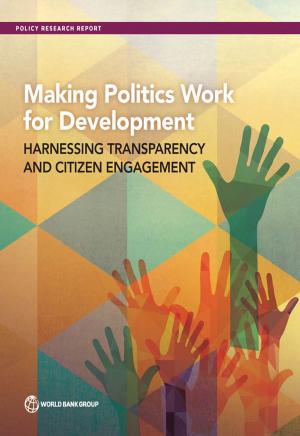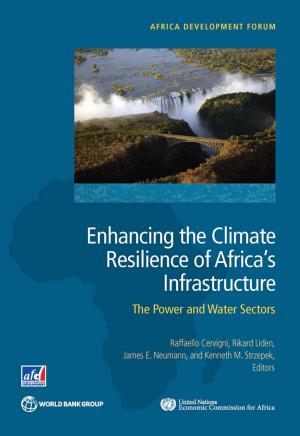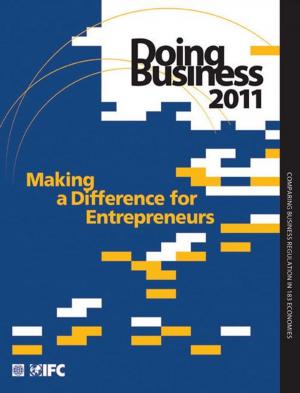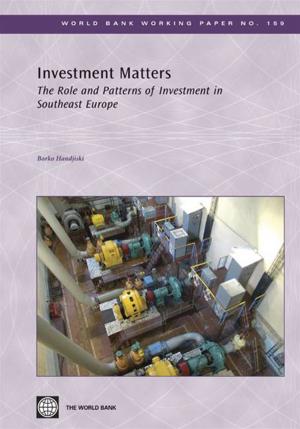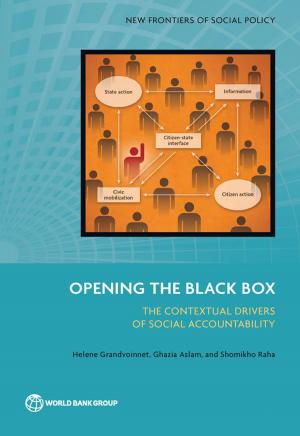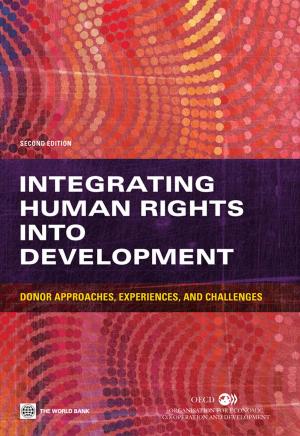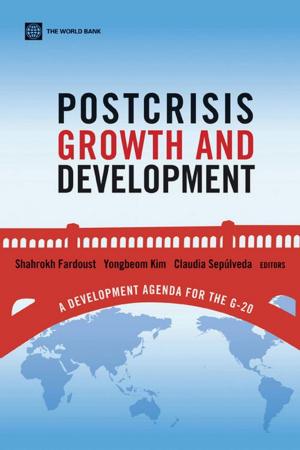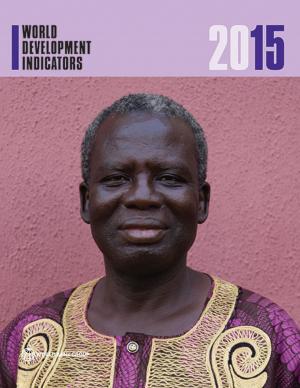Growth and Productivity in Agriculture and Agribusiness: Evaluative Lessons from World Bank Group Experience
Nonfiction, Health & Well Being, Medical, Patient Care, Health Care Delivery| Author: | World Bank | ISBN: | 9780821386460 |
| Publisher: | World Bank | Publication: | March 11, 2011 |
| Imprint: | Language: | English |
| Author: | World Bank |
| ISBN: | 9780821386460 |
| Publisher: | World Bank |
| Publication: | March 11, 2011 |
| Imprint: | |
| Language: | English |
The report assesses the World Bank Group?s support for growth and productivity in the agriculture sector. Enhancing agricultural growth and productivity is essential to meeting the worldwide demand for food and to reducing poverty particularly in the poorest developing countries. Between 1998 and 2008 the period covered by this evaluation the World Bank Group (WBG) provided 23.7 billion in financing for agriculture and agribusiness in 108 countries (roughly 8 percent of total WBG financing) spanning areas from irrigation and marketing to research and extension. However this was a time of declining focus on agricultural growth and productivity by both countries and donors. The cost of inadequate attention to agriculture especially in agriculture-based economies came into focus with the food crisis of 2007-08. The crisis added momentum to an emerging renewal of attention and stepped-up financing to agriculture and agribusiness at the World Bank and International Finance Corporation (IFC) as well as at several multilateral and bilateral agencies. World Bank financing rose two and a half times from 2008 to 2009 though that increase in lending seems to have been accompanied by a decline in analytical work which this review finds valuable for results. This evaluation seeks to provide lessons from successes and failures to help improve the development impact of the renewed attention to the sector. Ratings against the World Bank?s stated objectives and IFC?s market-based benchmarks for agriculture and agribusiness projects have been equal to or above portfolio averages in East Asia Latin America and the transition economies in Europe with notable successes over a long period in China and India. But performance of WBG interventions has been well below average in Sub-Saharan Africa where IFC has had little engagement in agribusiness. Inconsistent client commitment and weak capacity have limited the effectiveness of WBG support in agriculture-based economies particularly in Sub-Saharan Africa and constraints on staffing and internal coordination within the WBG have also hurt outcomes. Financial sustainability has been constrained by insufficient government funding and the difficulty of maintaining agricultural services and infrastructure. The WBG has a unique opportunity to match the increases in the financing for agriculture with sharper focus on improving agricultural growth and productivity in agriculture-based economies notably in Sub-Saharan Africa. Greater effort will be needed to connect sectoral interventions and achieve synergies from public and private sector interventions; to build capacity and knowledge exchange; to take stock of experience in rain-fed agriculture; to ensure attention to financial sustainability and to cross-cutting issues of gender environmental and social impacts and climate; and to better integrate WBG support at the global and regional levels with that at the country level.
The report assesses the World Bank Group?s support for growth and productivity in the agriculture sector. Enhancing agricultural growth and productivity is essential to meeting the worldwide demand for food and to reducing poverty particularly in the poorest developing countries. Between 1998 and 2008 the period covered by this evaluation the World Bank Group (WBG) provided 23.7 billion in financing for agriculture and agribusiness in 108 countries (roughly 8 percent of total WBG financing) spanning areas from irrigation and marketing to research and extension. However this was a time of declining focus on agricultural growth and productivity by both countries and donors. The cost of inadequate attention to agriculture especially in agriculture-based economies came into focus with the food crisis of 2007-08. The crisis added momentum to an emerging renewal of attention and stepped-up financing to agriculture and agribusiness at the World Bank and International Finance Corporation (IFC) as well as at several multilateral and bilateral agencies. World Bank financing rose two and a half times from 2008 to 2009 though that increase in lending seems to have been accompanied by a decline in analytical work which this review finds valuable for results. This evaluation seeks to provide lessons from successes and failures to help improve the development impact of the renewed attention to the sector. Ratings against the World Bank?s stated objectives and IFC?s market-based benchmarks for agriculture and agribusiness projects have been equal to or above portfolio averages in East Asia Latin America and the transition economies in Europe with notable successes over a long period in China and India. But performance of WBG interventions has been well below average in Sub-Saharan Africa where IFC has had little engagement in agribusiness. Inconsistent client commitment and weak capacity have limited the effectiveness of WBG support in agriculture-based economies particularly in Sub-Saharan Africa and constraints on staffing and internal coordination within the WBG have also hurt outcomes. Financial sustainability has been constrained by insufficient government funding and the difficulty of maintaining agricultural services and infrastructure. The WBG has a unique opportunity to match the increases in the financing for agriculture with sharper focus on improving agricultural growth and productivity in agriculture-based economies notably in Sub-Saharan Africa. Greater effort will be needed to connect sectoral interventions and achieve synergies from public and private sector interventions; to build capacity and knowledge exchange; to take stock of experience in rain-fed agriculture; to ensure attention to financial sustainability and to cross-cutting issues of gender environmental and social impacts and climate; and to better integrate WBG support at the global and regional levels with that at the country level.

